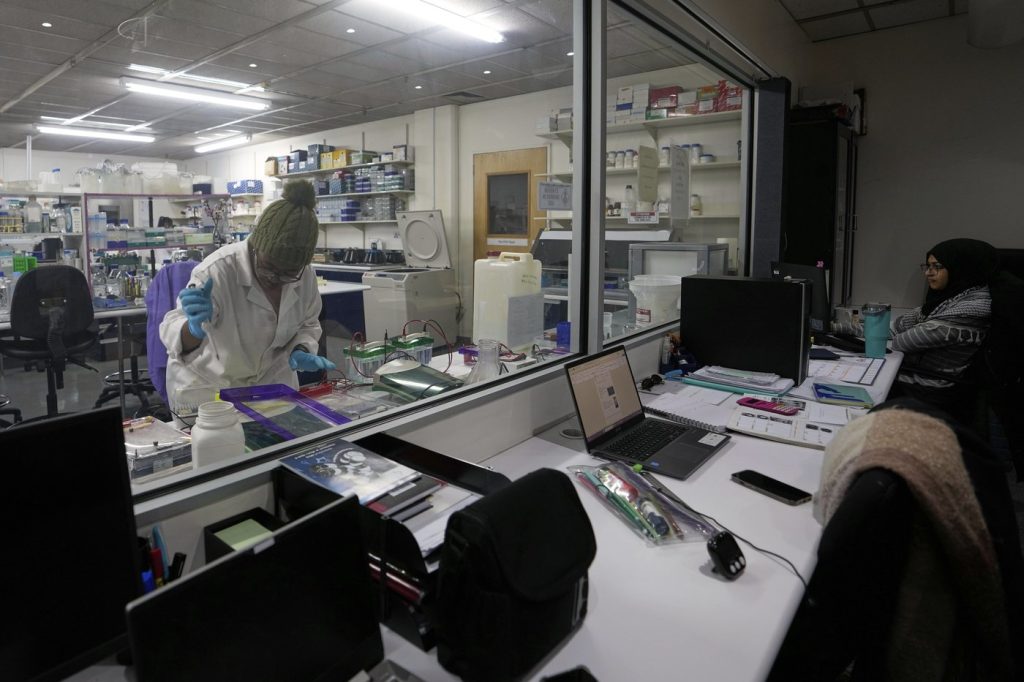JOHANNESBURG (AP) – In a significant setback for HIV research, South African scientists were on the verge of launching clinical trials for a promising HIV vaccine when they received abrupt news: they were to stop all work due to a funding withdrawal by the United States under the Trump administration. The announcement meant that the $46 million allocated to the project called BRILLIANT would no longer be available, impacting researchers in a region that has the highest rate of HIV infections globally.
The cuts to foreign aid by the United States aimed to prioritize domestic issues over international assistance, impacting South Africa which has historically received significant funding for health initiatives, particularly through USAID and the HIV-focused PEPFAR program. The funding previously provided around $400 million annually, which is now jeopardized by these policy shifts.
Glenda Grey, the head of the BRILLIANT program, expressed profound concern over the implications of the funding cuts. She noted that the African continent has played a critical role in developing HIV medications. The cessation of U.S. support could cripple future research activities, unfavorably affecting global health outcomes. South African researchers had previously achieved crucial advancements, including the development of lenacapavir, which is recognized as a groundbreaking preventive measure against HIV.
In the wake of the funding cuts, many individuals working on HIV vaccine trials faced immediate job insecurity. Nozipho Mlotshwa, a laboratory technician at the University of the Witwatersrand, voiced distress over the impending loss of her job that supports her studies and family. The cuts could not only lead to job losses but significantly hinder collaboration between South African scientists and their counterparts across the continent.
Professor Abdullah Ely, who leads the vaccine development team, indicated that promising results had already been achieved, but the sudden halt in funding has impeded progress. The BRILLIANT program is now racing against time to secure alternative funding, slowing down essential research activities and leading to staff layoffs. South Africa's health department reported that approximately 100 researchers focused on HIV-related work have lost their jobs, and the funding crisis threatens the futures of many postdoctoral researchers involved in ongoing projects.
The South African government has warned that universities and research councils could incur losses of about $107 million in U.S. research funding over the next five years due to these aid cuts. This situation not only affects HIV research but also hampers efforts to combat tuberculosis, which is another significant public health concern in the country.
Despite the challenges brought on by these funding cuts, the South African government has indicated that securing alternative funding to compensate for the loss of U.S. support will be extremely difficult. Consequently, the number of new HIV infections may rise, the accessibility of medication may decline, and crucial support personnel, such as health workers and patient counselors, are already being laid off.
Universities South Africa, representing various institutions, has sought appeal to the national treasury for over $110 million to sustain research initiatives across the largest academic institutions. During a visit to South Africa, UNAIDS executive director Winnie Byanyima highlighted the dire consequences of reduced funding and the potential consequences for public health as countries like Zambia, Nigeria, Burundi, and Ivory Coast face similar funding challenges.
In conclusion, it's clear that the recent funding cuts initiated by the Trump administration have severely disrupted HIV research efforts in South Africa, jeopardizing advancements that have vast implications for public health in this region of the world. The future of HIV research now hangs in the balance amid significant funding challenges.











